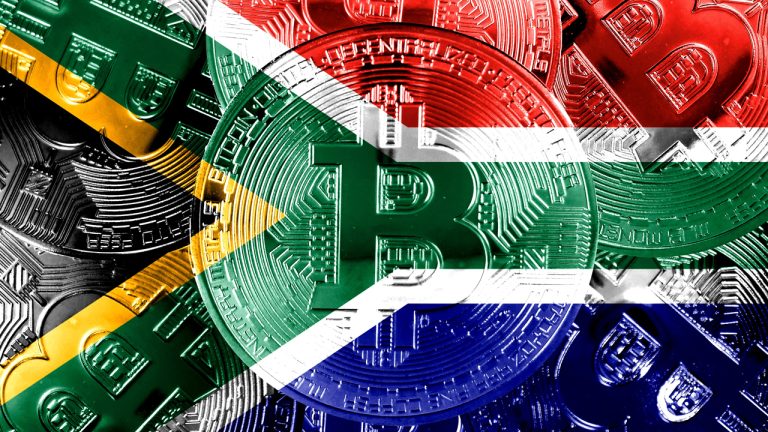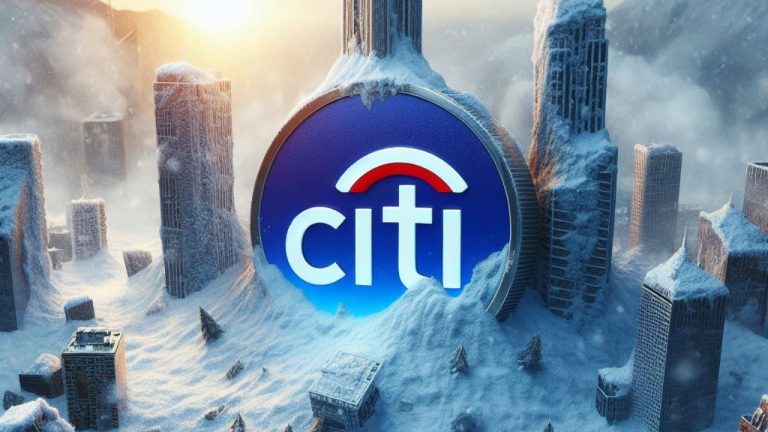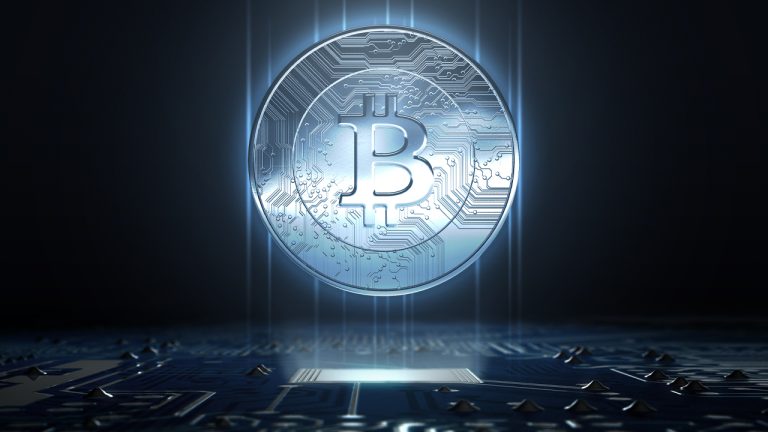 In 2024, the Intergovernmental Fintech Working Group, a consortium of South African regulators that unveiled a position paper on crypto assets in 2021, is expected to “publish additions to include stablecoins as a particular type of crypto asset.” The consortium is also considering the impact of tokenisation on domestic financial markets and is expected to […]
In 2024, the Intergovernmental Fintech Working Group, a consortium of South African regulators that unveiled a position paper on crypto assets in 2021, is expected to “publish additions to include stablecoins as a particular type of crypto asset.” The consortium is also considering the impact of tokenisation on domestic financial markets and is expected to […] Citi, in alliance with Wellington Management, Wisdomtree, and ABN AMRO, completed a proof of concept for the tokenization of a private fund on top of the Avalanche blockchain. The test used Spruce, an Avalanche subnet, to tokenize the fund and transact the tokenized assets, which were programmed to “automate operations, settle faster, and enable new […]
Citi, in alliance with Wellington Management, Wisdomtree, and ABN AMRO, completed a proof of concept for the tokenization of a private fund on top of the Avalanche blockchain. The test used Spruce, an Avalanche subnet, to tokenize the fund and transact the tokenized assets, which were programmed to “automate operations, settle faster, and enable new […]
David Schwartz thinks real-world asset (RWA) tokenization is primed to “drive the blockchain economy.” Schwartz, Ripple’s chief technology officer (CTO), predicts that real estate and commodities will lead to RWA tokenization. “Tokenized RWAs on XRP Ledger will enhance collateralized loans, improve interoperability, and attract institutional adoption, reshaping the financial sector. XRPL will be a leading […]
The post Real-World Asset (RWA) Tokenization Primed To ‘Drive the Blockchain Economy,’ Predicts Ripple CTO David Schwartz appeared first on The Daily Hodl.

Real-estate-backed stablecoin USDR fell to $0.53 per coin on Oct. 11, but the team said it was merely a liquidity issue and that real estate holdings and digital assets will be used to support redemptions.
Real estate-backed stablecoin USDR lost its peg to the U.S. dollar after a rush of redemptions caused a draining of liquid assets such as Dai (DAI) from its treasury, its project team has revealed.
USDR — backed by a mixture of cryptocurrencies and real-estate holdings — is issued by Tangible protocol, a decentralized finance project that seeks to tokenize housing and other real-world assets.
USDR is mostly traded on the Pearl decentralized exchange (DEX), which runs on Polygon.
An update on $USDR
— Tangible (@tangibleDAO) October 11, 2023
Over a short period of time, all of the liquid $DAI from the $USDR treasury was redeemed.
This lead to an accelerated drawdown in the market cap.
Combined with the lack of DAI for redemptions, panic selling ensued, causing a depeg.
We’re working on…
In an Oct. 11 tweet, Tangible explained that over a short period of time, all of the liquid DAI from the USDR treasury was redeemed, leading to an accelerated drawdown in the market cap, adding:
"Combined with the lack of DAI for redemptions, panic selling ensued, causing a depeg."
USDR experienced a flood of selling at around 11:30 am UTC, driving its price as low as $0.5040 per coin. It recovered slightly, to around $0.53 shortly afterward.

Despite the coin losing nearly 50% of its value, the project’s developers have vowed to provide “solutions” to the problem, saying it was merely a liquidity issue that has temporarily challenged redemptions.
“This is a liquidity issue,” they stated. “The real estate and digital assets backing $USDR still exist and will be used to support redemptions.”
Despite this loss to the treasury, the app’s official website stated on October 11 at 9:57 pm UTC that its assets are still worth more than the entire market cap of the coin.

14.74% of USDR’s collateral consists of Tangible (TNGBL) tokens, which are part of the coin’s native ecosystem. The team claims that the remaining 85.26% are collateralized by real-world housing and an “insurance fund.”
Related: Insurance, real estate: How asset tokenization is reshaping the status quo
Stablecoins are intended to always be worth $1 on the open market. But they sometimes lose their peg under extreme market conditions.
Circle’s USDC (USDC), the sixth-largest cryptocurrency by market cap as of October 11, fell to $0.885 per coin on March 11 when several banks in the U.S. went bankrupt, but it regained its peg on March 14. Terra’s UST lost its peg in May and never recovered. It is valued at $0.01 per coin as of October 11, according to data from Coinmarketcap.

The Federal Reserve has published a paper exploring the benefits and use cases of tokenizing real-world assets (RWA) on blockchains. In a paper titled “Tokenization: Overview and Financial Stability Implications,” Fed researchers say RWAs such as stocks, bonds, real estate and commodities are already being tokenized. According to the paper, asset tokenization harnesses the power […]
The post Federal Reserve Releases Paper on Benefits of Tokenization of Real-World Assets appeared first on The Daily Hodl.

Commodity tokenization would enable African countries — such as Ghana and Botswana — an opportunity to empower themselves without relying on international aid.
In my youth, amid Ghana’s cocoa farms, I walked with my grandfather, a soldier turned farmer. He shared how these beans fueled our nation’s pride and economy. As the digital age unfurls, I often wonder: Could the modern marvel of crypto tokenization be the change my grandfather and countless cocoa farmers need?
Despite their vast agricultural and mineral wealth, many African countries face issues such as limited access to global markets, unfair trading conditions, lack of transparency in transactions and susceptibility to market manipulation. These challenges hinder economic growth, perpetuate poverty and prevent many Africans from realizing their full potential.
For decades, Africa’s economic potential has been stifled by external forces with vested interests. Colonial-era tactics of economic control might have faded, but modern neocolonialism is subtly pervasive. It thrives through unfair trade agreements, economic policies dictated by global financial powerhouses and a sheer lack of transparency in international dealings.
Related: An ETF will bring a revolution for Bitcoin and other cryptocurrencies
Take, for instance, Ghana’s government under President Nana Akufo-Addo, which has procured $3 billion in loans from the International Monetary Fund since 2017. While these loans might have temporarily filled coffers, they also deepened the country’s indebtedness.
Instead of seeking IMF loans, Akufo-Addo could have championed commodity tokenization. Tokenizing Ghana’s key commodities — such as gold, cocoa and oil — on the blockchain would create significant economic opportunities. In 2022, Ghana produced an estimated 3.7 million ounces of gold, valued at $6.7 billion; a record 689,000 tonnes of cocoa, valued at $1.65 billion; and produced oil at a rate of approximately 150,000 barrels per day.)
Considering the numbers, it’s conceivable that such an initiative in Ghana could enhance trade volumes for these commodities by several billion dollars. With the current market prices being $1,909 per ounce for gold, $3,340 per tonne for cocoa, and $82 per barrel for oil — and the possibility of significantly reduced transaction fees through tokenization, which could be as much less than traditional avenues, according to the Boston Consulting Group — the resultant economic activity from global trading could substantially increase Ghana’s revenue.
#Tokenization will help drive Blockchain to mass adoption n there’s over $100 TRILLION in Assets ready to be tokenised $QNT $CSPR $RIO are all pioneers in this sector
— ConstructionTrader.eth (@C_Traderz) August 14, 2023
Act Accordingly #Bitcoin #eth #QNT #CSPR #RIO pic.twitter.com/9qutoi1jKU
Tokenizing commodities, specifically Ghana’s gold reserves, presents a fresh avenue to drive the economy forward. Let’s delve into what it means: Ghana could use its physical gold to back digital tokens, like the decentralized stablecoin Dai (DAI), which is backed by several real-world assets. These tokens, anchored by tangible gold, become a globally recognized digital currency.
Why would anyone buy this digital currency backed by gold? Investors and countries looking for a stable digital currency would be attracted. This isn’t just a digital number — each token holds the value of real gold. It’s a way for investors to hold gold without the physical constraints, making it especially attractive in a digital age.
How would this diversify Ghana’s revenue streams? Well, tokenizing opens up new avenues for income. Traditional gold sales remain, but now there’s an additional stream: digital gold sales. Each time a token is bought, Ghana benefits. Plus, the nation can also introduce fees or premiums on these digital transactions.
Lastly, the move would place Ghana at the digital forefront. With the rise of digital economies, being a pioneer in such initiatives could be a game-changer, allowing Ghana to dictate its economic narrative in the digital realm.
The potential revenue from tokenized commodities, if explored, could have provided a viable alternative to borrowing sprees. Consider Ghana’s finance minister, Ken Ofori-Atta. His policies lean on taxing impoverished citizens. It’s baffling that in a rapidly advancing digital age, establishing a clear regulatory framework for crypto technologies hasn’t been a priority. Could this hesitancy stem from a fear of losing control over traditional financial power structures? Or is it simply a lack of foresight?
Moreover, international institutions like the World Bank are exhibiting inertia when it comes to promoting innovations like crypto tokenization. Why do they appear keener on advancing loans than fostering an environment that encourages self-sustainability through technology? Do they have underlying motives that prioritize their interests over Africa’s genuine development?
The promise of blockchain technology offers a beacon of hope to address these injustices. By adopting blockchain, countries like Ghana can ensure a level of transparency where every transaction is recorded and remains unalterable. This transparent approach will serve as a formidable weapon against corruption and illicit financial flows, and will be a step toward better governance.
Tokenization of commodities via blockchain also makes direct trade possible, effectively removing the need for middlemen who, historically, have pocketed undue profits. This ensures that farmers and producers earn their rightful share.
Rather than being dependent on external financial juggernauts, a decentralized financial system might pave the way for greater self-reliance, while also curtailing the overarching influences of neocolonial interests. Furthermore, the potential of tokenized commodities showcases the vast opportunities blockchain presents in introducing new revenue avenues, diminishing external debts and uplifting the economy on the whole.
Ghana could similarly offer to back DAI with its gold reserves. Botswana could do the same with its diamond reserves. These commodities, which traditionally have been undervalued or traded suboptimally, could now generate considerable revenue. By tokenizing these assets, Ghana could not only sell its gold at international market rates but also introduce a tokenization premium and fee, which could be a whole new revenue stream.
Related: Worldcoin: Should you let Sam Altman scan your eyeballs?
If the actions of companies like Goldman Sachs and BackRock are any indication, tokenization could be a big market opportunity. Embracing blockchain could add trillions to the continent. It could spur job creation, increase investment, and so much more.
However, to realize this potential, there is a need to address challenges in logistics, including storage, transport and tax considerations. Trust and security are also paramount, potentially requiring third-party audits from reputable globally recognized firms. Audits from companies like KPMG or PwC would lend significant credibility and assurance to the entire tokenization process, bolstering global investor confidence in the integrity and security of Ghana’s tokenized commodity market.
If Ghana grants visionary crypto entrepreneurs a strong regulatory regime, blockchain-driven growth could spearhead an economic revolution in their country. That revolution could have a ripple effect across the continent, with or without African governments that have woefully failed their people. To me, this is more than just speculation. It’s a call for reflection — and for action.
This article is for general information purposes and is not intended to be and should not be taken as legal or investment advice. The views, thoughts and opinions expressed here are the author’s alone and do not necessarily reflect or represent the views and opinions of Cointelegraph.

CFTC Commissioner Caroline Pham says recent court opinions around digital assets and securities are a first step to crypto regulatory clarity.
Caroline Pham, one of five commissioner of the Commodities Futures Trading Commission, believes the path to United States crypto regulatory clarity has been laid out following Ripple’s partial victory.
Speaking on Bloomberg TV on July 17, Commissioner Pham said recent big court decisions regarding the classification of crypto assets will eventually lead to regulatory clarity.
“You know, last year I said that we were going to see regulatory clarity first in the courts around the definition of a security, and I think we’ve seen that with some very big court opinions that have been released.”
Pham said that she was looking forward to participating in regulatory working groups and hoped other United States regulators, such as the Securities and Exchange Commission, would work together to come up with a “holistic approach” to crypto regulation.
Pham's comments come a few days after San Francisco fintech firm Ripple won a key partial victory in an ongoing court battle in which the SEC accused it of selling unregistered securities.
Judge Analisa Torres of the Southern District of New York ruled on July 14 that XRP (XRP) was not a security when sold to retail investors on digital asset exchanges.
Thank you @BloombergTV for the opportunity to talk about our important GMAC initiatives! Beyond crypto, institutional markets & central banks are looking at tokenization of real assets like bonds. Today, we heard about international, US & EU developments & key takeaways. https://t.co/cWTShDy2Bf
— Caroline D. Pham (@CarolineDPham) July 18, 2023
The ruling was not well received by SEC Chair Gary Gensler, who called it disappointing at a July 17 press conference. Gensler has previously suggested that every digital asset aside from Bitcoin is a security, though his agency has not gone as far as to say the same.
Despite this, Gensler has vowed to continue with enforcement actions following the recent Ripple triumph.
Related: Ripple court ruling makes call for regulation 'more compelling and more urgent' — former CFTC chair
Commissioner Pham also highlighted the importance of real-world asset (RWA) tokenization. She said there were “real opportunities” to modernize financial markets through the tokenization of money market funds on the blockchain.
Traditional finance companies have been increasing their engagement with real-world asset protocols, resulting in several RWAs outperforming DeFi assets recently.
Collect this article as an NFT to preserve this moment in history and show your support for independent journalism in the crypto space.
Magazine: Crypto regulation: Does SEC Chair Gary Gensler have the final say?

A high-ranking crypto-skeptic at the U.S. Federal Reserve has acknowledged that blockchain and tokenization could have an innovative impact on the future of finance. Christopher J. Waller, one of the seven members of the Fed’s Board of Governors, says in a new speech that smart contracts and tokenization carry inherent risks, but also have “considerable […]
The post Crypto-Skeptic U.S. Federal Reserve Governor Talks Up Potential Benefits of Blockchain and Tokenization appeared first on The Daily Hodl.
 On April 3, 2023, the Dfinity Foundation, a development team behind the Internet Computer (ICP) network, announced the launch of a native ICP token called “chain-key bitcoin” or “ckBTC.” The bitcoin derivative is backed 1:1 with the leading cryptocurrency asset. On Monday, Dfinity detailed that the technology “builds on the protocol-level integration with the Bitcoin […]
On April 3, 2023, the Dfinity Foundation, a development team behind the Internet Computer (ICP) network, announced the launch of a native ICP token called “chain-key bitcoin” or “ckBTC.” The bitcoin derivative is backed 1:1 with the leading cryptocurrency asset. On Monday, Dfinity detailed that the technology “builds on the protocol-level integration with the Bitcoin […]